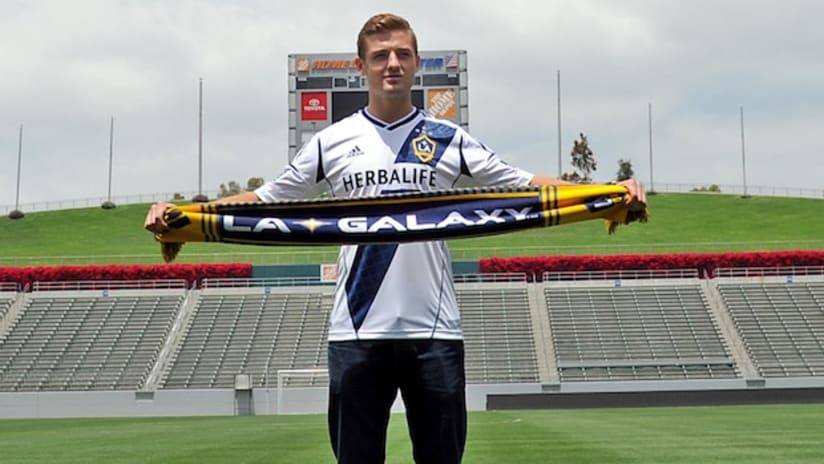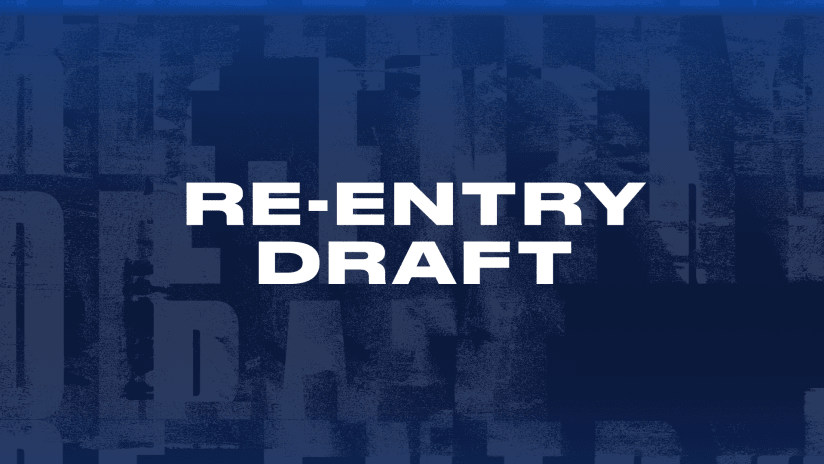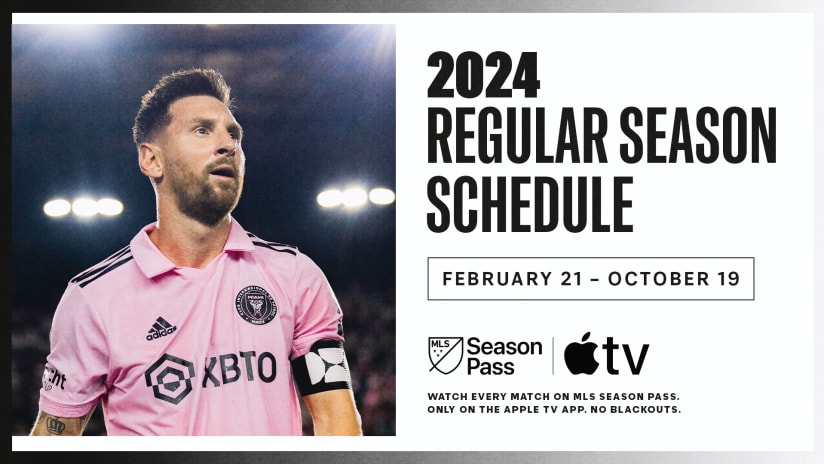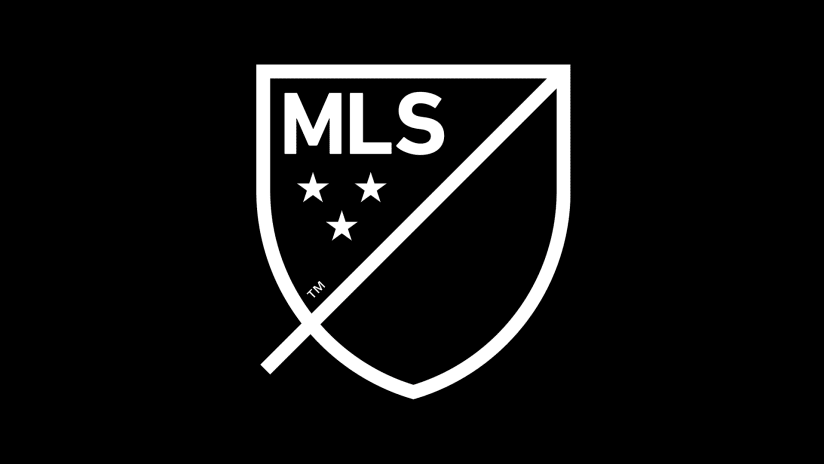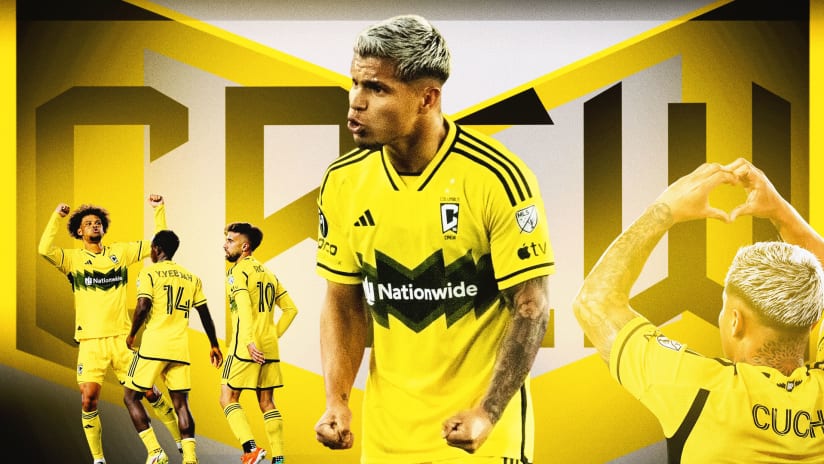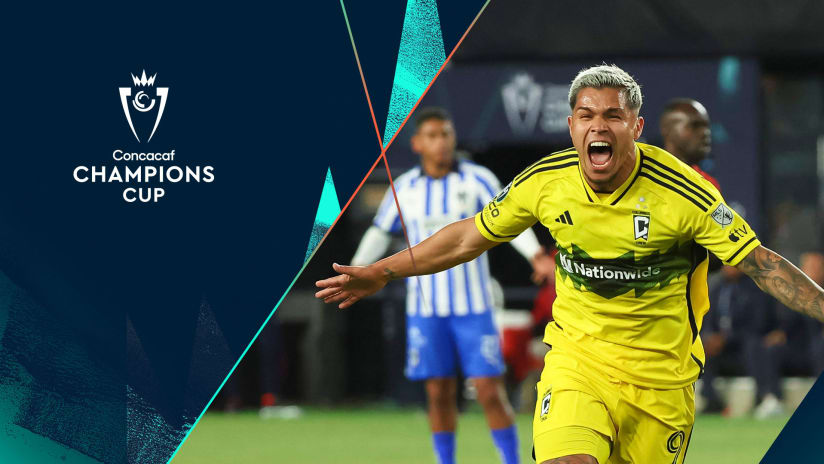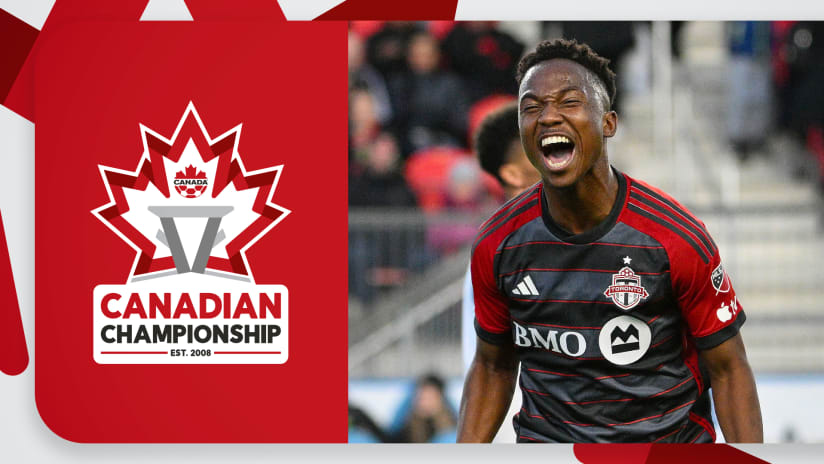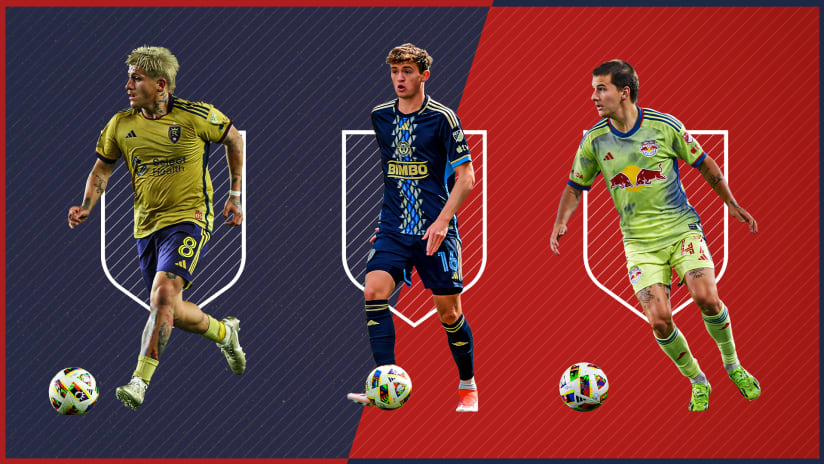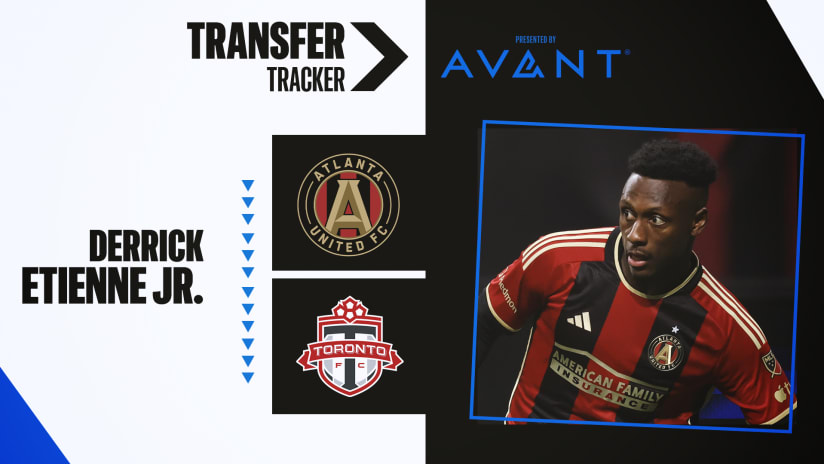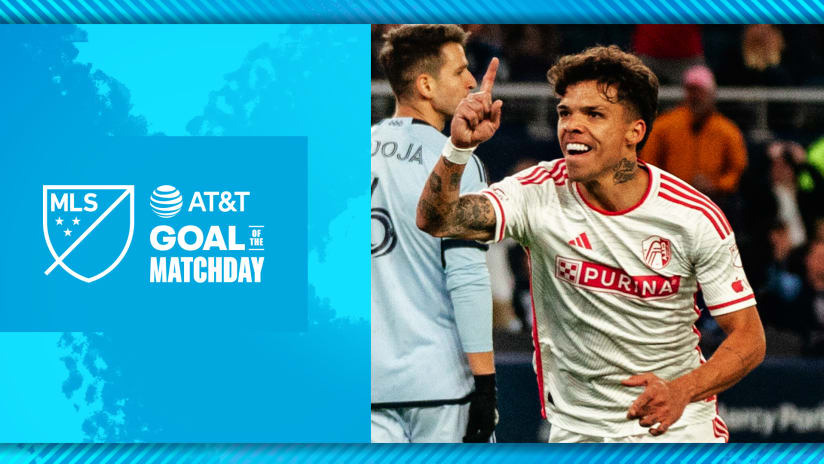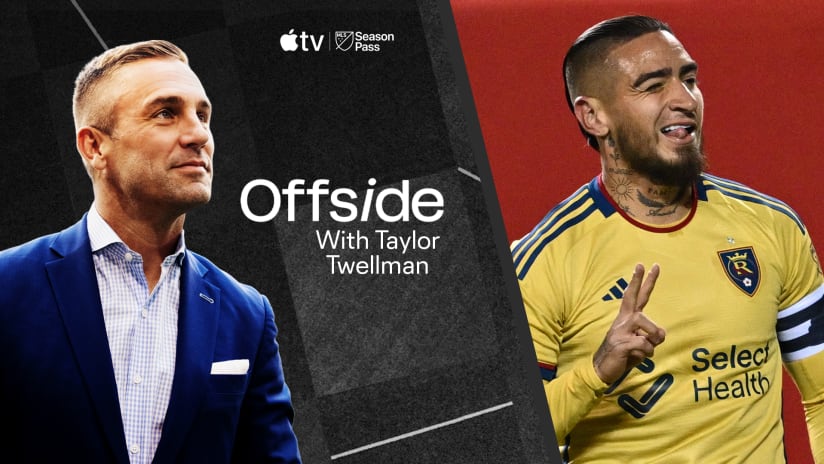CARSON, Calif. – Is Major League Soccer really ready for a gay player?
It better be, because Robbie Rogers, who has returned to the game after announcing his retirement three months ago and revealing that he is gay, might make his LA Galaxy debut on Sunday night against the Seattle Sounders (11 pm ET, ESPN2, live chat on MLSsoccer.com) and, in doing so, bust open a sizable barrier in American sport.
Rogers, 26, is an icon and role model for LGBT youth and a rallying point for the gay community in Los Angeles and around the country, but he's also a lightning rod for homophobic outbursts – and not just from fans in the seats who might get carried away.
Things are said in the heat of the moment on the field, as San Jose's Alan Gordon can attest: He picked up a three-game suspension earlier this year for directing a homophobic slur at Portland's Will Johnson. Several players have served that sentence, including Rogers' new teammate, Colin Clark, for an incident last year when he was with Houston.
Those aren't bigoted attacks, and Rogers, who signed with LA this weekend after his rights were acquired from the Chicago Fire, expects everything is going to be just fine.
“I think there's something unique about the MLS,” Rogers, who also has played in the Netherlands and England, said after the Galaxy introduced him at a Home Depot Center news conference on Saturday. “I think the locker rooms in MLS are a little bit different from what I've experienced in Europe. That's not to say that in England or Europe that they're ready or not ready – I'm not sure. ...
“The MLS is definitely ready. And I think the United States is ready for more athletes to come out in other sports, whether that be the NBA, obviously, or the NFL, and I'm hoping from this experience and from the experience of others, more athletes will feel comfortable with doing so.”
READ: Robbie Rogers returns to MLS, the world of Twitter responds
There have been athletes who have acknowledged their homosexuality after their careers ended, but very few, at least in men's team sports, to do so while they were active. Major-league baseball player Glenn Burke came out to his teammates and coaches in the 1970s and later claimed prejudice ended his career prematurely. NBA free agent center Jason Collins revealed last month that he is gay.
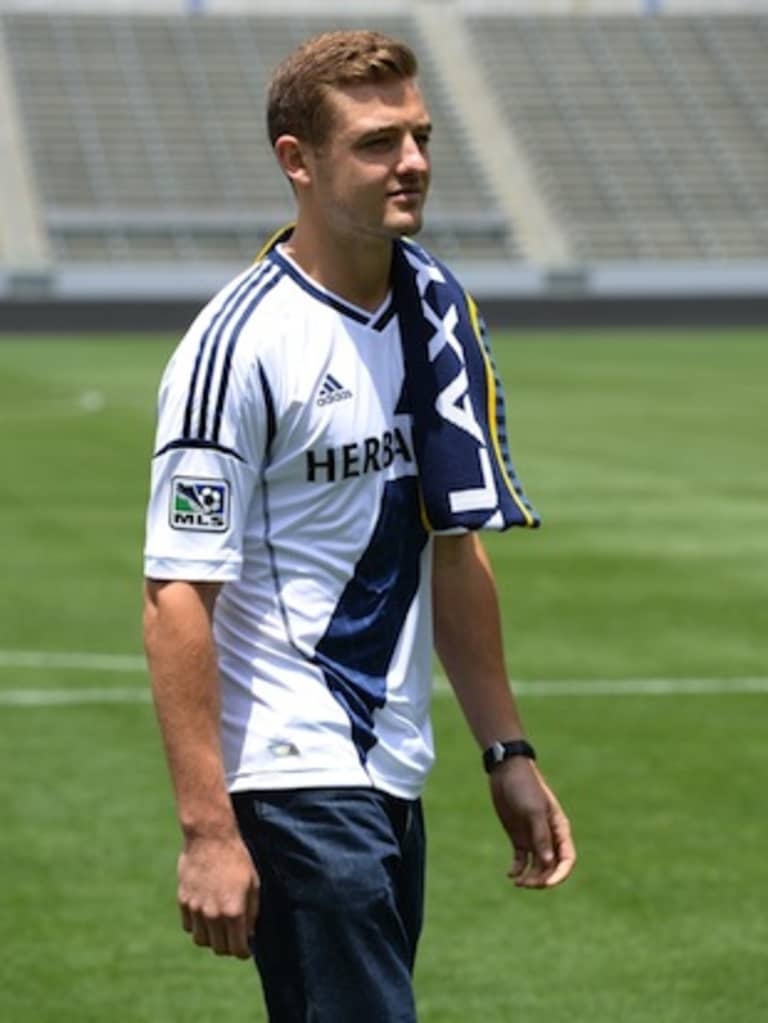
Rogers, who like Collins grew up in Southern California, understands why athletes might be fearful to go public with their sexuality. He didn't believe he could do so and be accepted on the field.
“I kept my secret because I thought I couldn't be both a soccer player and a gay athlete,” he explained. “It's not true, but I felt that way. I was afraid to put myself in a situation where I felt I was kind of an outcast and just different from people, but through this whole process, I've realized everyone is a bit different, everyone has their issues.
"I've learned that it's part of me. I'm a soccer player, I'm a Christian, I'm just like everyone else.”
Rogers found out how wrong he was after announcing he was done. The outpouring of support for him, along with pleas to rethink retirement, turned his head. How easy it was to come out stunned him.
“That's the number one lesson of all this,” he said. “I was afraid to come out to my family. I thought it was the hardest thing in the world. After that, I was like, 'I don't know what I was so worried about.' Then I posted that letter [on my blog] that I wasn't going to post, and I thought that was going to be the end of the world.
"And then coming back just to train, I thought that was going to be the hardest thing. At the end, it's just not a big deal, and people are very supportive. It's a great lesson I've learned. It's almost like I didn't give people the opportunity to accept me.”
READ: Commissioner Garber calls Rogers "a courageous man and a terrific soccer player"
The world, he notes, is changing, and his impact on society, he understands, could be considerable. Landon Donovan thinks it already is.
“Everybody wants [this] to go a certain way on the field, but in my opinion, it's already a success,” Donovan said. “Whether he plays one minute or 1,000 minutes or 10,000 minutes, it's already a big step in the right direction for our society as a whole. ...
"It's a massive step. I watched 42 the other week, the Jackie Robinson movie, and people [who weren't alive then] don't really understand what that was like then. And so we can't imagine what it's been like for Robbie to go through what he's gone through.
“This is a big step in the right direction for society, in my opinion, for humanity, and I think we're all proud to be a part of it. When all is said and done, we'll probably look back and say that's crazy that we even cared about that at the time, that it's not a big deal. And that's the hope.”
Galaxy captain Robbie Keane played in Europe for 14 years, nearly all of it in England, and he sees differences between here and there.
“I'm sure that there are a lot of players over the years that have played in England or wherever [who were gay] but are too frightened to come out ...,” Keane said. “I think it's maybe easier to cope with it in America than England, where they're maybe a little bit behind over there, in regards of the situation.
"I think maybe the fans are a bit more brutal than they would be here, but shouldn't be the case, because no matter who you are or what you are, everyone is the same. Everyone should be equal. It’s 2013, for Chrissakes. People move on and to each their own.”
WATCH: Rogers trains with the LA Galaxy
MLS fans have a reputation for tolerance, but baiting opposing players is part of the theater, and there are some who wouldn't consider shouting racist abuse but might consider homosexuality egregious behavior. What happens when somebody targets Rogers?
“To some extent, you hope that people treat him like any other player, as long as it's respectful,” Donovan said. “I have no problem with people chanting at us or saying clever things and stuff like that. When people are nasty, that's something no athlete likes, that no person would like.”
READ: Analyst: Rogers for Magee? Everybody wins in this one
Rogers says his on-field focus keeps him from hearing what's going on in the stands, and he doesn't search out discussion boards or comments that appear with online articles.
“I don't go out searching for positive or negative comments. I think that's something you don't do as an athlete, ever ...,” he said. “I think that our society's changing. Obviously, there are a lot of people that are still behind and not willing to accept the fact that there's gay men and women out there, that we don't have a choice, that I was created this way.
"I'll just let those people voice their opinion. This is the United States, they can say what they want. In the end, I'll still love them. I'll still give them a hug if they want one. I think it's inevitable that in the future everyone will accept that this is just part of life.”
Rogers still has work to do to get back to full fitness and form, but Arena says he'll probably be on Sunday's 18-player game-day roster now that his International Transfer Certificate has arrived. He hasn't played in half a year; what will it be like for him to step on the field in a real game again?
“I'm really excited to get back, and that's the best part as an athlete, is actually competing, being on the field in the stadium and competing against other guys ...,” Rogers said. “I think it will be quite natural and normal, but I think maybe after, once I have time to take everything in, that maybe I'll be like, OK, this has been quite a journey for me.”
It's just another step forward.
Playing soccer, he acknowledges, makes him a role model and spokesperson of sorts, and “of course, I feel the added pressure. It's the pressure of now you're representing the whole community. I guess I could just remind people that I'm human, I'm going to make mistakes, this is a learning process for me. And just to be excited and hopefully continue this shift, this movement of acceptance.”

